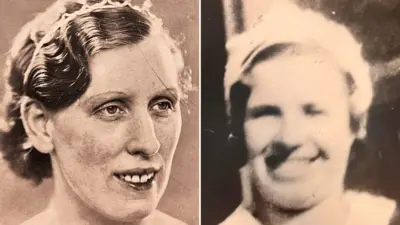We've updated our Privacy and Cookies Policy
We've made some important changes to our Privacy and Cookies Policy and we want you to know what this means for you and your data.
Bullying: Children point finger at adults
Image source, Getty Images
- Author, Hannah Richardson
- Role, ҙуПуҙ«ГҪ News education reporter
Children want adults to show each other more respect, with four out of 10 (41%) seeing grown-ups bullying each other in the past six months, a survey says.
Research among 1,001 children aged 11 to 16 by the Anti-Bullying Alliance suggests worrying numbers of children see adults setting a bad example.
Children in that age group highlighted adults who behaved poorly to each other face-to-face, online or in the media.
Some 97% said they would like to see more respect shown between grown-ups.
The survey is published ahead of the annual charity push against bullying,, which begins on Monday, November 12.
It comes after many reports of a bullying culture in numerous high-profile workplaces in England, including the Palace of Westminster
'Show respect'
Martha Evans, director of the Anti-Bullying Alliance, said: "Children look to parents and other grown-ups for a blueprint of acceptable behaviour.
"If a considerable number of children say they see adults bullying and being disrespectful to each other, we have to ask whether grown-ups could do more to act as role models to children.
"We hope that adults, as well as schoolchildren, will take the 'choose respect' message to heart during Anti-Bullying Week, and put it into practice even in situations where they disagree with someone else.
"Being bullied can turn a child's life upside down; we should always check our own behaviour, especially around children, to make sure it sends a positive message of respect."
The research also suggests a third of children had experienced being bullied in the last six months.
But nearly all children - some 98% - said that showing respect to each other is important, and acknowledged that it was possible to be respectful even if you disagree.
The research was carried out with 1,001 children in England aged 11 to 16, in October.
Top Stories
More to explore
Most read
Content is not available








